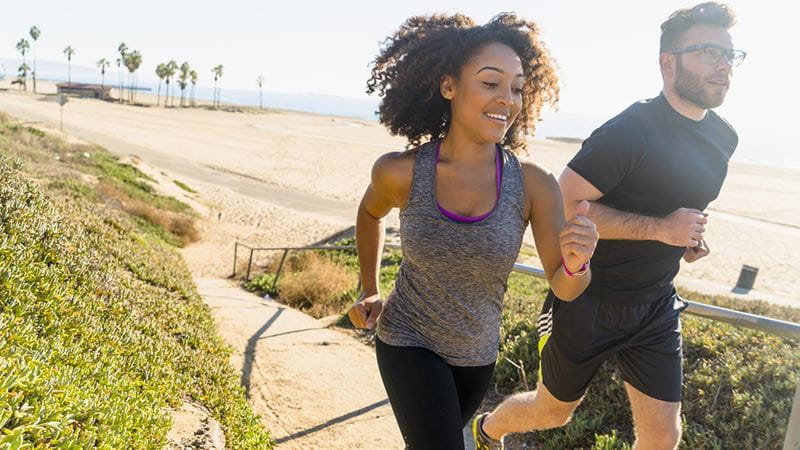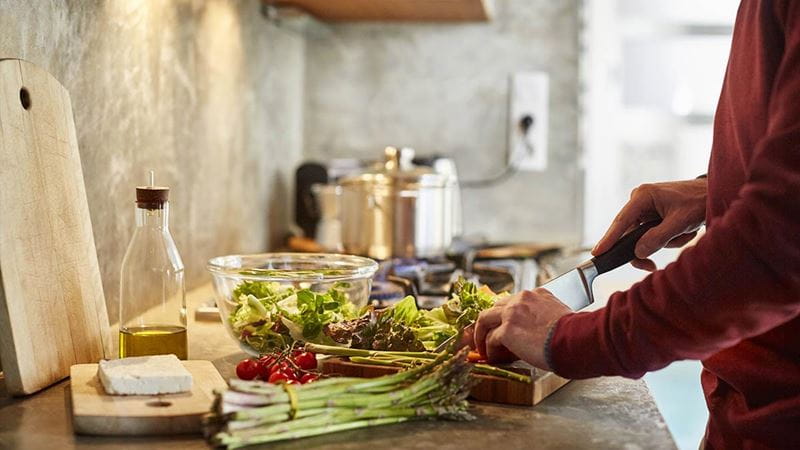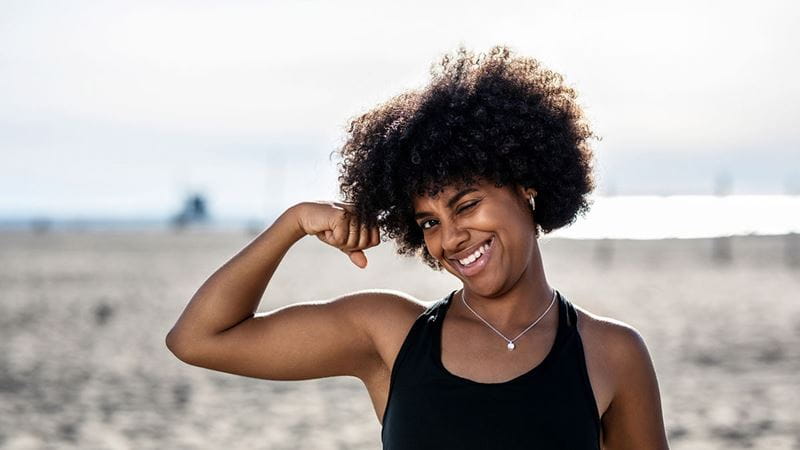Blog article
How to get fit in your 30s

Paying attention to your fitness in your thirties can improve both your physical and mental health.1
Exercise can also help you sleep better, helps reduce the risk of some conditions like type 2 diabetes, high cholesterol, cancer and Alzheimer’s, and can even lengthen your life.1
You can get these benefits even if you’ve never really exercised much before, so no matter what your journey has been so far, it’s worth making a change and focusing on your health a bit more.
How much exercise should I do in my 30s?
Helpfully, the Australian Department of Health have physical activity and exercise guidelines recommended for Australians of all age groups.3
Moderate intensity physical activity: 2.5 to 5 hours per week
For adults it’s recommended you find time to be active every single day, if you can, with at least 2.5 to five hours of moderate-intensity physical activity a week.
That’s activities like taking a brisk walk, going for a swim, mowing the lawn or going for a bike ride on relatively level ground (maybe with a few hills).
Moderate-intensity activities mean you’re working your body hard enough to raise your heart rate and break a sweat, but you should still be able to talk (but not sing).4
Vigorous intensity physical activity: 1.25 to 2.5 hours per week
Like shorter, harder workouts? You could go for 1.25 to 2.5 hours of vigorous-intensity physical activity each week instead. That’s more like jogging, aerobics, or playing soccer or netball.
Muscle strengthening
They also recommend muscle-strengthening exercises a couple of times a week. Think yoga, weightlifting, and bodyweight exercises (push-ups, squats, calf raises).
How should I get my exercise in my 30s?
Enjoy yourself, start small, and stick with it. These are a few tips that can really help you out when starting a new fitness journey.
-
Find an activity you enjoy doing.
We’re not all gym bunnies – and thankfully great exercise doesn’t have to happen in the gym. Set up an obstacle course, go stand-up paddle boarding, ride a bike, or go on a hike. You’re more likely to find time for something you enjoy. -
Start small and build up.
You don’t have to complete a full 45-minute intense workout on day one (or indeed ever). Maybe day one is a 10-minute walk, next week go for 15 minutes, and so on. -
Fit exercise into your schedule.
Between work and family commitments, life can feel busy. Find a convenient way to fit fitness into your daily routine. Get clever about it! You could fit it into your commute by cycling to work or getting off the bus a few stops early. -
Exercise with others.
Another great motivator for exercise can be doing it with someone. If you’ve committed to that 6am power walk with your buddy, or a weeknight game of tennis with a friend, you’re probably less likely to skip it, and it’ll be enjoyable.
Nutrition tips for your 30s
Getting a balanced diet in your thirties can pay off for the rest of your life. Set yourself up with healthy eating habits now – you may thank yourself later.
-
Trust (and follow) the national guidelines
TV, news and Social Media are stuffed with diets promising a ‘quick-fix’ or ‘instant results’… but they can be really restrictive and unsustainable. They’re also not likely backed up by any science or evidence.
National guidelines might not seem as exciting as the next new fad diet but they are backed by evidence and extensive research– no restrictive diets or juice cleanses to be found. Eat closely to the national guidelines and you’ll ensure you’re getting all the nutrients your body needs.
-
Try to avoid sneaky added sugars
Added sugars can sneak into some foods where you wouldn’t expect to find them.
When in doubt, check the ingredients list. Fructose, malt syrup, dextrose and rice syrup are all different names for added sugars.
Highly processed foods are notorious for this, so you’re best to keep consumption of these foods to a minimum and opt instead for less processed or minimally processed whole foods.
-
Choose to cook at home
Cooking your own meals can be a gamechanger.
When you cook at home, you are in control of what’s going into your meal which generally means it’s going to be a healthier choice. (source)
No more sneaky sugars. No more checking ingredients lists. No more wondering what’s in that takeout you ordered.
And don’t forget to have fun with it! Get creative with cooking techniques, try different herbs and spices, or search online for some inspiration.
A final word on fitness in your 30s
It’s never too late to focus on your health and wellbeing. If you have fitness goals to achieve, don’t forget HBF can help.
Good luck with your new fitness habits!
1 Exercise and mental health, Healthdirect Australia (2019)
2 Australian Government Department of Health (2021)
3 Physical activity guidelines for older adults, Healthdirect Australia (2020)
This article contains general information only and does not take into account the health, personal situation or needs of any person. In conjunction with your GP or treating health care professional, please consider whether the information is suitable for you and your personal circumstances.


